Hello everyone, what’s up?
In the previous article, I explored racism as a myth that white supremacy dominates.
In this article, we will explore how social orders are maintained.
こんにちは、みなさん!調子はどうですか。
前回の記事では白人至上主義が支配する神話としての人種差別について取り上げました。
この記事では、この神話が一体どのようにして維持されているのかについてみていきます。
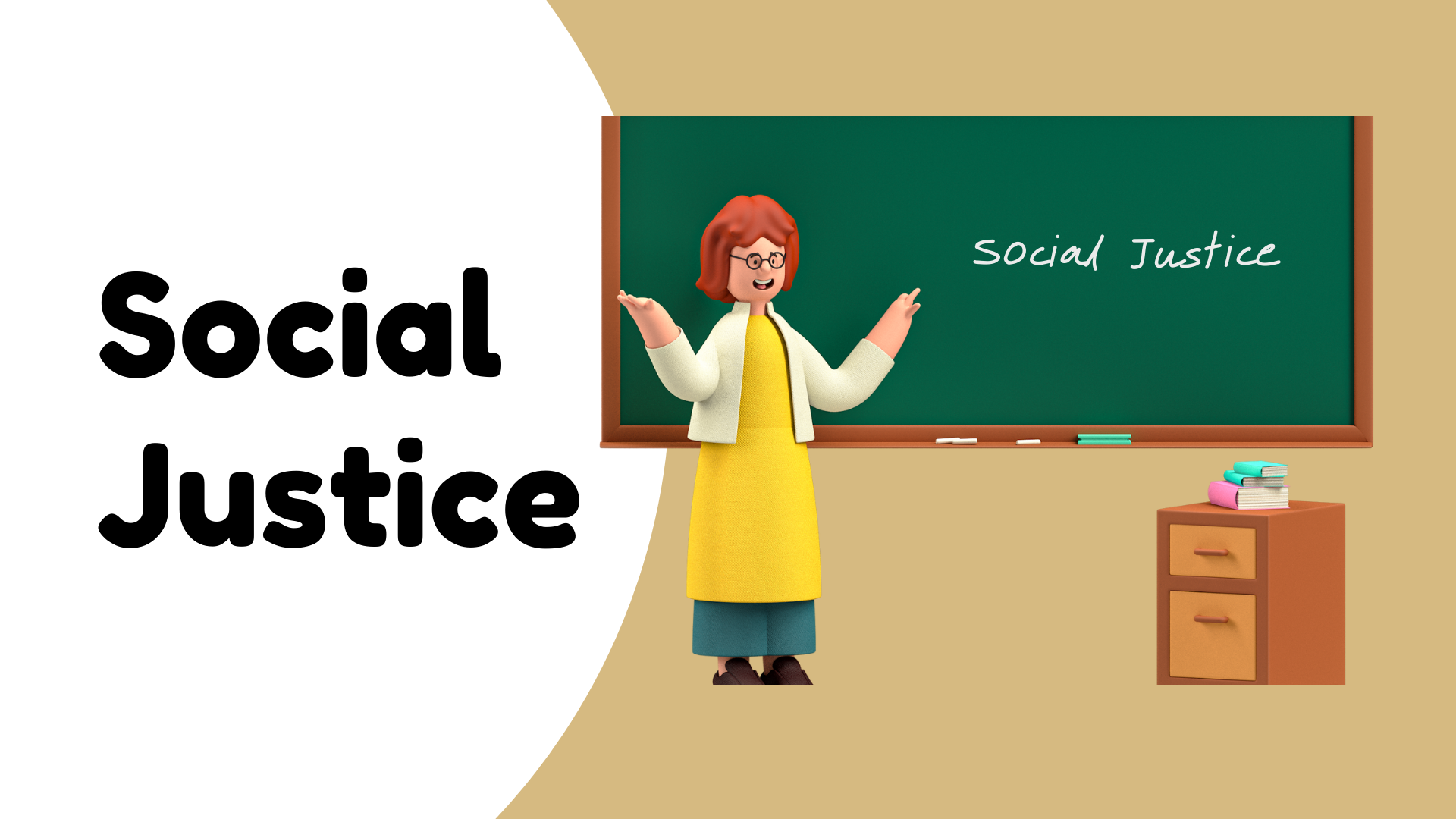
Racism#2
The Cycle of Socialization◼社会化のサイクルとは
An article, “The Cycle of Socialization,” was written in 1997 by Bobbie Harro, who is a national authority on social justice issues in the U.S.
この「The Cycle of Socialization」は米国のSocial Justice 問題分野の権威Bobbie Harroによって1997年に書かれた記事です。
Social Identities◼社会的アイデンティティ
People are born into a specific set of social identities, related to the categories of difference, such as below.
人々は、以下のような社会的アイデンティティの元に生まれてきます。
These social identities predispose people to unequal roles in the dynamic system of oppression.
People are socialized by powerful sources to play the roles prescribed by an inequitable social system (=systematic training of “how to be”). Its features are as follows.
これらの社会的アイデンティティは、抑圧というダイナミックなシステムの中で人々を不平等な役割に向かわせます。 人々は強力な情報源によってその役割を演じるよう導かれ、不公平な社会システムである、『そのアイデンティティを持つ人はどうあるべきか』という体系的なトレーニングによって規定された役割を演じさせられます。以下のような特徴があります。
The first step to understand social justice
As your first step, please make a personal inventory of various social identities relating to the categories above.
最初のステップとして、自身のさまざまな社会的アイデンティティに関するリストを作ってみましょう。あなたはどんなアイデンティティを割り当てられているでしょう?
The Cycle of Socialization◼社会化のサイクル
The Beginning: Circle no.1🟦はじまり
Identities are ascribed to people at birth.
アイデンティティは生まれたときに割り当てられるものです。
In a world innocents people are falling into, there are the following systems already in place and functioning.
誰もが無垢な状態で生まれますが、生まれ落ちた世界には次のようなシステムがすでに導入され、機能しています。
Dominant groups and subordinate groups
People are categorized into two groups, dominant and subordinate groups of each social identity.
各社会的アイデンティティは支配グループと従属グループの2つのグループに分かれ、人々はそのいずれかに分類されます。
They influence what people take with them when they venture out of their protected family units into a larger world of other institutions.
When you choose one of the social identities and write down at least ten examples of what you learned about being that identity, you can write more about target identities than agent identities.
守られてきたー家族ーというユニットから他のより大きな機構をもつ世界に足を踏み入れるとき、自分が何を備えてそこに入っていくのかは、どんな社会的アイデンティティを自身が持っているのかに左右されます。
社会アイデンティティの一つを選んで、そのアイデンティティを持っていることで学んだことを少なくとも十個書いてみてください。そうすると、支配アイデンティティよりも、従属アイデンティティについてより多くのことをリストアップすることができるでしょう。
First Socialization: Arrow no.1🟩最初の社会化
Immediately upon birth, people begin to be socialized by people they love and trust the most: caretakers, role models, and teachers. This socialization happens both intrapersonally (how you think of yourself) and interpersonally (how you relate to others.) People don’t initially question anything and unconsciously conform to caretakers’ views. They may unconsciously pass things that they were taught by their caretakers.
生まれるとすぐに、人は最も自分の近くにいる大切な人、信頼している人、つまり世話をしてくれる人たち、ロールモデルとなる人、そして教師たちによって社会化を植え付けられます。この社会化は、自己確立(自分自身をどう捉えるか)と対人関係(他者と自己との関係をどう捉えるか)の両方でなされます。その初期においてはその社会化に対して誰も疑問を持たず、無意識に自分の世話をしてくれる人たちの見解に従うのです。大人になると、自分が教わったことを無意識のうちに次の世代に渡すこともあるでしょう。
Institutional and Cultural socialization : Circle no.2🟨制度的および文化的社会化
Once people begin to expand social activities, their socialization sources are rapidly multiplied based on how many institutions with which they have contact.
社会に出て社会的な活動を拡大し始めると、自分が関わっている団体の数に乗じて、社会化を行う情報源が急速に広がります。
When you are in a dominant group, you may not notice that these above aren’t fair. When you are in a subordinate group, you have a constant feeling of discomfort.
People learn these rules, roles, and assumptions are part of a structure that is larger than just their families.
支配グループにいるとき、あなたは上記のようなことが公平でないことに気が付かないかもしれません。一方、従属グループにいるとき、あなたは常にその不快感を経験します。
人々は、これらの規則・役割・仮定が、家族間だけのことではなく、よりも大きな構造の一部であることを学びます。
What makes this ‘brainwashing’ even more insidious is the fact that it is woven into every structural thread of the fabric of culture.
You could identify thousands of examples to illustrate the oppressive messages that bombard everyone daily, reinforcing the divisions and ‘justifying’ discrimination and prejudice.
文化の構造を構築する糸の一本一本にこのシステムが織り込まれているという事実は、この「洗脳」活動をさらに陰湿なものにします。
これらの媒体を観察することで、毎日の生活に根付いて日々降り注いでいる、支配と従属を強め、差別や偏見を正当化させるようなメッセージを何千とみつけることができるでしょう。
Enforcement : Arrow no.2🟧実施
Why don’t people just begin to think independently if they don’t like them?
➡ We do not ignore them because there is enforcement in place to maintain them.
気に入らないなら、どうして自分の好きなようにしないの?
➡文化を維持するための強制が存在しており、人はそれを無視できません。
Results : Circle no.3🟥結果
The results of this systematic learning are devastating to all involved. By participating in roles as targets people reinforce stereotypes, collude in their own demise, and perpetuate the system of oppression. This learned helplessness is often called internalized oppression because they have learned to become their own oppressors from within.
この体系的な社会化という学習プロセスの結果は、関係者全員に壊滅的なインパクトを与えます。標的の役割を教育された人は、固定観念を強くし、自身の立場を消滅へと追いやるように、この抑圧システムに屈してシステムの永続に加担します。この学習によって味わった無力感は、自分自身の中にこの抑圧を受け入れることを促進させます。これが抑圧の内在化です。
To participate in roles as agents, to remain unconscious of, and to be unwilling to interrupt the cycle will let people perpetuate the system of oppression.
代行者としての役割に参加したり、無意識のままでい続けたり、この社会化というサイクルの中断を望まないことは、すべて抑圧のシステムを永続に繋がります。
The results are often cited as the problems facing the U.S. today:
結果は、今日の米国が直面している問題としてしばしば言及されます。
Ironically, the root causes of them are inherent in the very assumptions on which the society is built:
皮肉なことに、それらの根本的な原因は、社会が構築されているまさにその前提に内在しています。
A way that we might personally explore this model is to take one of the societal problems. To trace its root causes back through the cycle to the core belief systems or patterns in U.S. society that feed and play host to it.
It is not a coincidence that the U.S. is suffering from these results today; rather it is a logical outcome of our embracing the status quo, without thinking of challenging.
私たちがこのモデルを個人的に探求する良い方法は、社会問題の1つを取り上げ、その根本原因を追求することです。循環されているシステムをさかのぼることで、それを育み、提供し続けている米国社会の中心的な信念体系や典型を特定するのです。
今日、米国がこれらの問題に苦しんでいるのは偶然ではありません。むしろそれは、挑戦することを考えもせず、現状維持を好む米国が出した論理的な結果なのです。
Actions: arrow no.3🟪行動
Doing nothing means to become participants. Silence is consent. This cycle doesn’t need active support. Targets are playing their roles as victims, and that supports letting the cycle alive.
何もしないということは、この社会化の参加者になるということです。沈黙は同意なのです。このサイクルに積極的な支援は必要ありません。従属グループは犠牲者としての役割を果たすことで、この社会化のサイクルが稼働し続けることに加担しています。
Choosing the direction for change◼変えることを選ぶ
What drives people to fight◼不正義と戦うことを可能にする力
Azumi’s view◼アズミの見方
What are the problems of socialization?
Socialization dehumanizes humans and creates social problems. That’s why it is problematic. On the other hand, it is a developed social skill that Sapiens have refined ever since the Cognitive Revolution. In order to mass cooperation and maintain a large-scale network, this hierarchal system has been heavily relied on. It seems that in order to let make people cooperate, we need to curtail our humanity.
It gives people stress, fear, discomfort, dis-empowerment, and so forth. Then, it causes physical and mental illness, violence, substances abuse, dehumanization, and so on.
社会化の何が問題なんでしょうか?
社会化は人から人間らしさを奪い、社会問題を引き起こします。一方、ホモサピエンスが認知革命を経験して以来、絶えず洗練させてきたのが、社会的なスキルであり、大規模な人々を協力させ、大規模なネットワークを維持するため構築した、階層システムに社会は大きく依存してきました。人々を協力させるためには、人から人間性を削る必要があるようなのです。
このシステムは人々にストレス、恐れ、不快感、無力化などを与えます。そして、それは肉体的および精神的な病気、暴力、薬物乱用、人間らしさの喪失などを引き起こします。
What is the concept of socialization?
Social identities are something people cannot choose thereby should not force the power dynamics. These identities divide people into two groups: dominant group and subordinate group. It has established systems that let people socialized, and it maintains an unequal society. It creates social issues such as poverty, crime, drugs, and high drop-out rates. However, it is easy to choose not to take action because of the following factors: fear, ignorance, confusion, insecurity, and power of powerlessness.
社会化のコンセプトは何ですか?
社会的アイデンティティは人々が選択できないものであり、それによって権力を与えたり搾取したりという力の構造関係を強制するべきではありません。社会的アイデンティティは、人々を支配的なグループと従属的なグループの2つに分けます。これによって人は社会化され、不平等な社会を維持してきました。それは、貧困、犯罪、麻薬、高い中退率などの社会問題を引き起こします。しかし、人が経験する恐れ、無知、混乱、不安、無力感の脅威は、行動を起こさないこと簡単に選択させてしまうのです。
How did you like the article?
I like Horro’s assertion that people need to see connections to other ‘ism.’ However, the text is full of stories of the U.S. It doesn’t introduce that how another society has struggled against another hierarchal circle as well as racism in the U.S. Although examining socialization is a tough thing to do, I believe that seeing this issue from a bigger perspective makes it less stressful. For example, I learned the racism is an insane social system without being an agent nor a target. It allows me to observe them interestingly rather than depressively.
この記事についてどう思いましたか?
人々は他の「差別主義」とのつながりを見るべきだというHorroの主張はすごいです。革命的だと思いました。しかし、この記事自体は米国で起こっているストーリーばかりです。他の社会が他の階層的サークルについては紹介していません。社会化の仕組みを考察するのは大変なことですが、この問題をより大きな視点から見ることで、ストレスを軽減して考察することが可能だと思います。たとえば、私は代行者でも標的でもない立場から、人種差別を学びました。なんてバカバカしい社会システムなんだと心から思ったのです。自分が標的かもしれない代行者かもしれないというストレスを持たずに、この社会問題について好奇心をもって観察することができました。
How does the article relate to your life?
When I learned this system as an outsider, then it lets me think about what hierarchy Japan possesses. To me, it seems that Japanese society holds deep invisible classism or invisible, even subconscious xenophobia while they value harmony. These contradictions conflict when they are required to accept refugees or demanded to accept the foreign labor force.
So, reflecting on my personal experience, I would suggest people in the U.S. learn something like the Hindu caste system. It might be much easier to understand the problem that people should take action. More a macro perspective, it is also very helpful to learn how humans have grown societies and develop social skills. What has been changed and what hasn’t yet. I would rather go with this much big picture, like 10,000 years span, and see 250 years of the U.S.’s history. Yes, I am implying, why don’t you read Sapiens, a macro history book, with me!! lol
この記事はあなたの生活にどのように関わってくるでしょう?
この社会化というシステムをアメリカの人種差別を例に部外者として学んだことで、日本人がどんな階層社会を持っているのかについて考えさせられました。日本の社会は、調和を重んじる一方で、深く、しかし目に見えずらい階級差別が根付いています。一見恐怖心に見えたり、時には潜在的とも言えるような、外国人排斥思考も抱えています。これらの矛盾は、海外からの難民を受け入れることを要求された場合や、外国の労働力を受け入れることが必須となった場合に衝突します。
というわけで、私の個人的な経験を振り返ると、米国の人々はヒンドゥー教のカースト制度のようなことを学ぶのも良いんじゃないかと思います。そして、人はこの問題に対して行動を起こしていかなければならないと理解する方がはるかに構造理解という点ではストレスが少ないです。よりマクロな視点で、人間がどのように社会を拡大させ、社会的スキルを発達させてきたかを学ぶことは非常に役立ちます。何がこれまで変わってきたのか、何がまったく変わっていないままなのか、私はむしろ、10,000年のスパンのような、はるかに大きな全体像をの中で、250年の米国の歴史を見た方がいいと思うんです。(はい、そうです。マクロヒストリーの本であるサピエンスを私と一緒に読んでみませんか!と暗におすすめしているんですよ!笑)
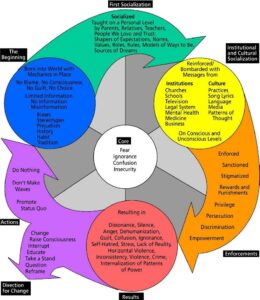
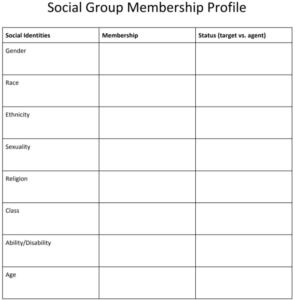

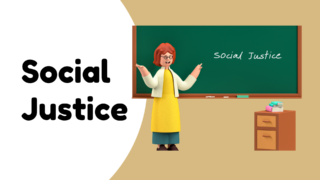


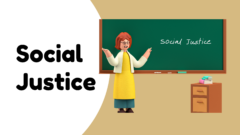
コメント